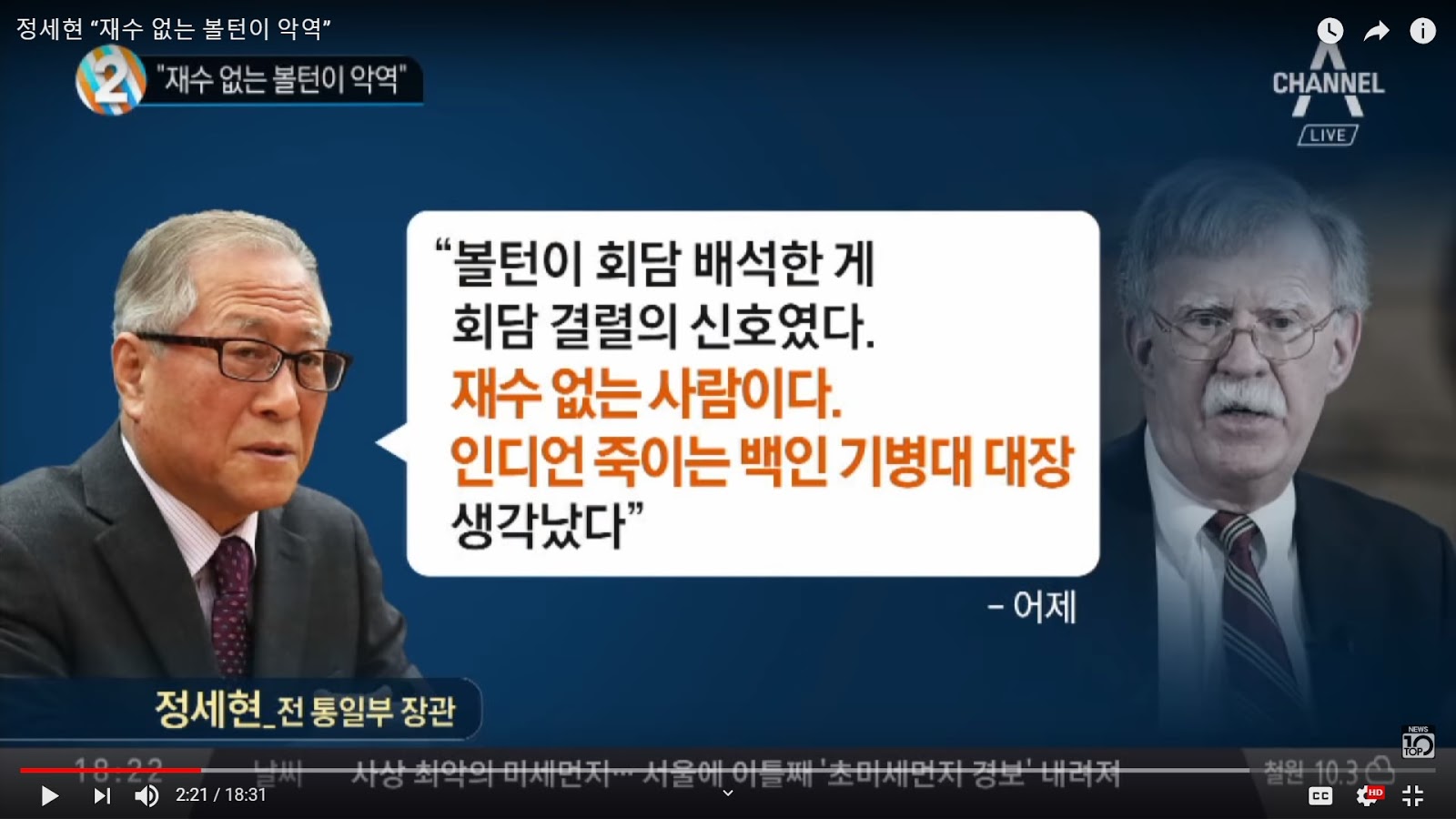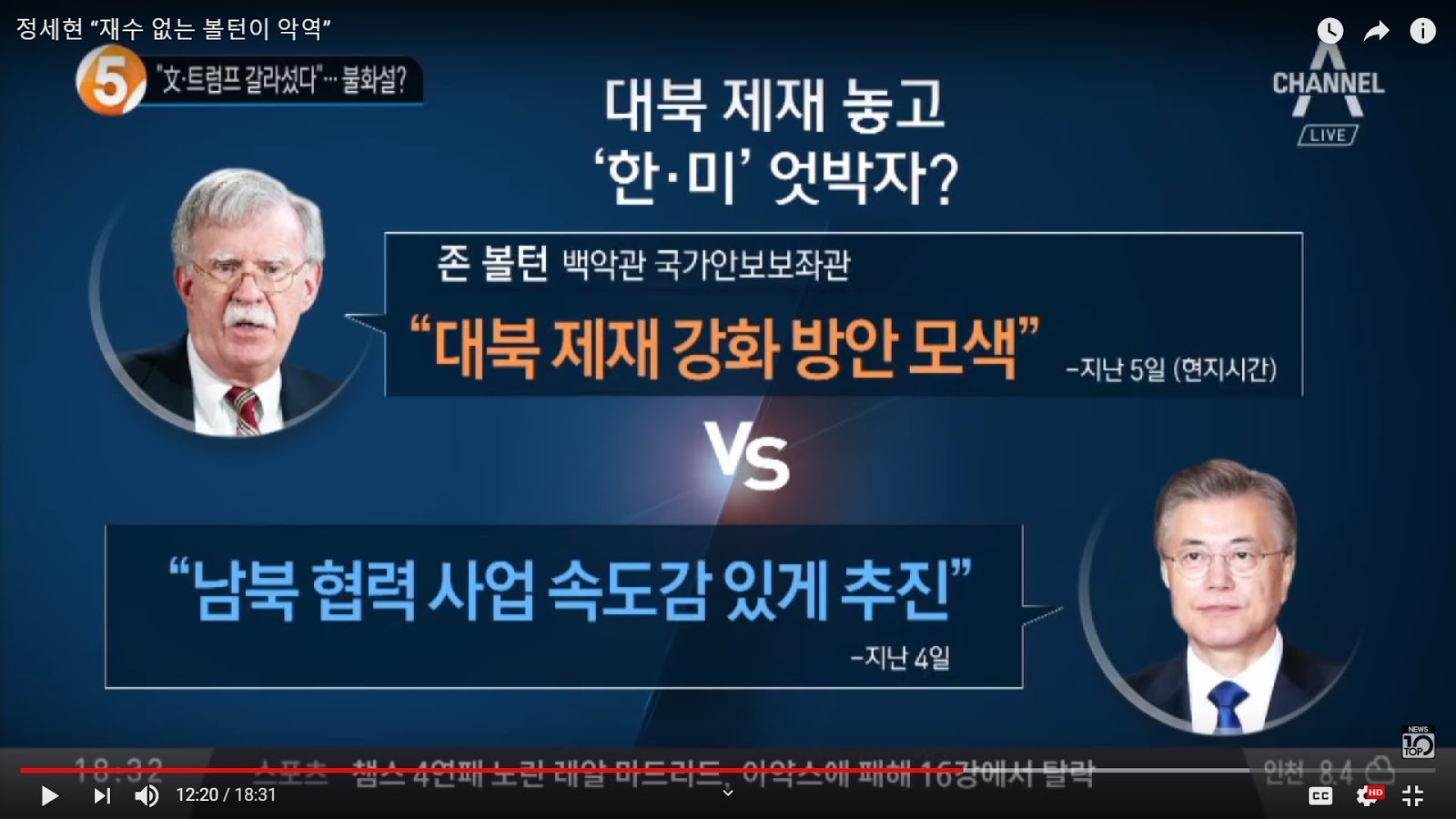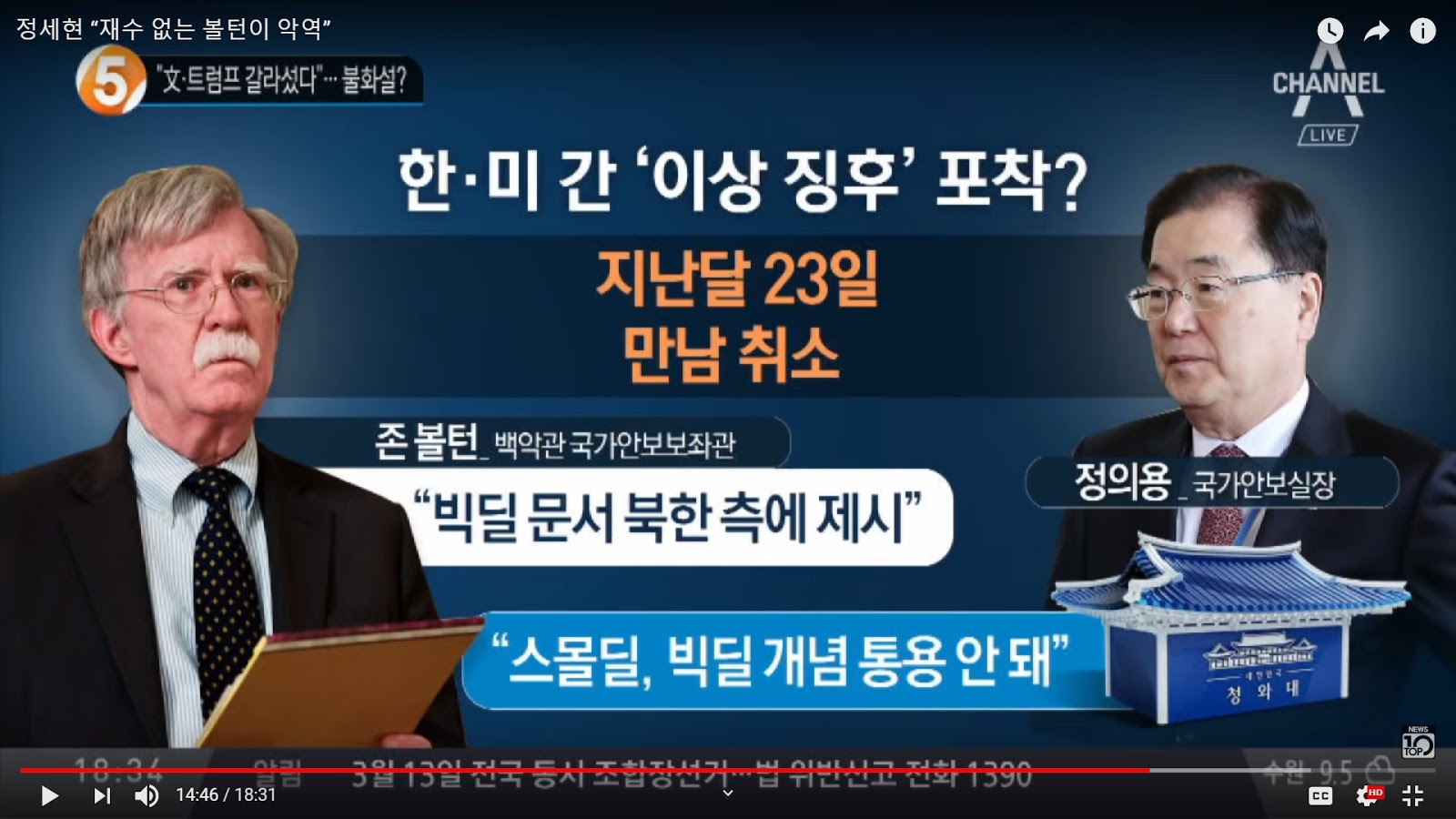Welcome to DU!
The truly grassroots left-of-center political community where regular people, not algorithms, drive the discussions and set the standards.
Join the community:
Create a free account
Support DU (and get rid of ads!):
Become a Star Member
Latest Breaking News
General Discussion
The DU Lounge
All Forums
Issue Forums
Culture Forums
Alliance Forums
Region Forums
Support Forums
Help & Search
Foreign Affairs
Related: About this forumUS- South Korean Differences after Hanoi
Last edited Sat Mar 16, 2019, 12:12 AM - Edit history (2)

(Source- Channel A News Top Ten, 3.7) Jong Se Hyun- "Ill fated Bolton villain." "Bolton's participation in the summit dialogue signaled its collapse. He is (an unwanted) ill fated person. The thought of an Indian killing white cavalry general comes to mind."
Jong Se Hyun criticized John Bolton's critical "no deal" role at the summit talks in Hanoi. Jong, the former Unification Minister of South Korea, described Bolton as an ill fated person, and likened him to a white cavalry general who kills "Indians." There is a minor media tempest on the right about his remarks criticizing Bolton's performance at the summit. Channel A analysts criticized Jong's remarks as undiplomatic and going too far. Jong maintained that Bolton deliberately killed the talks if the analogy with a General Custer like description wasn't clear enough. This pretty much comports with Tae Yong Ho's analysis a few days ago, except that Tae, the the North Korean diplmatic defector and darling of the right in South Korea, regarded the failure of the talks as a good outcome. So did a couple of the Top Ten analysts who are also conservative. One maintained that a successful "small deal" involving dismantlement of Yongbyun facilities in return for sanctions waivers for reopening of the South Korean resort in Kumgansan North Korea would be untenable or difficult for South Korea in some way had it been an agreed outcome at Hanoi. It's not clear what that difficulty would be.

(Source- Channel A News Top Ten, 3.7) 5. Trump-Moon split- trouble? Lessen North Korean sanctions- ROK-US out of step? Bolton- I'm looking for ways to strengthen sanctions against North Korea. (March 5) Moon- Advance the speed of North South cooperative enterprises. (March 4.)
There was some discussion of President Moon Jae In's reaction and response at a ROK Security Council meeting called after the Hanoi Summit. Moon asked the administration leadership to find the best ways to promote plans for economic cooperation with North Korea in the context of the framework of UN economic sanctions. The discussion by conservative analysts emphasized that Moon is out of step with the US policy, and the program quoted Bolton as looking for new ways to impose further sanctions on North Korea. Given that Moon wants to press ahead with South Korean policy objectives with North Korea, the analysts questioned whether Moon could function as an effective mediator between the US and North Korea any longer. They quoted from a Bloomberg source dated March 4, (which I've been unable to locate) that observed that US and South Korean policies with respect to North Korea were going separate ways. This was contrary to the view expressed by Jong Se Hyun, that there can't be any other path but to have Moon continue to press on with his role as facilitator of continued progress in negotiations as he is the party that understands the postures and positions of both the US and North Korea. This perspective was shared also on JTBC News yesterday in an interview by Moon Chung In, an independent advisor on national security to the Blue House. Their idea is that President Moon is the best suited individual to help close the gap between the parties.

(Source- Channel A News Top Ten, 3.7) Strange signal detected between the US and South Korea? February 23 (security advisers) meeting cancelled. Bolton- I have a "big deal" document to present to the North. Jong Eui Yong- Small deal, a big deal concept won't work.
Another part of the program noted that Bolton had planned to meet the National Security Advisor of South Korea, Jong Eui Yong, on February 23 before the Hanoi summit. The Korean National Security Advisor, apparently had an apprehension of Bolton's so called "big deal" written proposal with which he differed and the meeting was canceled. US press reports had merely reported that Bolton didn't go because he had more pressing matters in Venezuela to attend to. This fundamental difference in his views from those of the South Korean administration weren't disclosed. It's hardly conceivable that his presence would be welcomed in Seoul.
InfoView thread info, including edit history
TrashPut this thread in your Trash Can (My DU » Trash Can)
BookmarkAdd this thread to your Bookmarks (My DU » Bookmarks)
0 replies, 778 views
ShareGet links to this post and/or share on social media
AlertAlert this post for a rule violation
PowersThere are no powers you can use on this post
EditCannot edit other people's posts
ReplyReply to this post
EditCannot edit other people's posts
Rec (0)
ReplyReply to this post